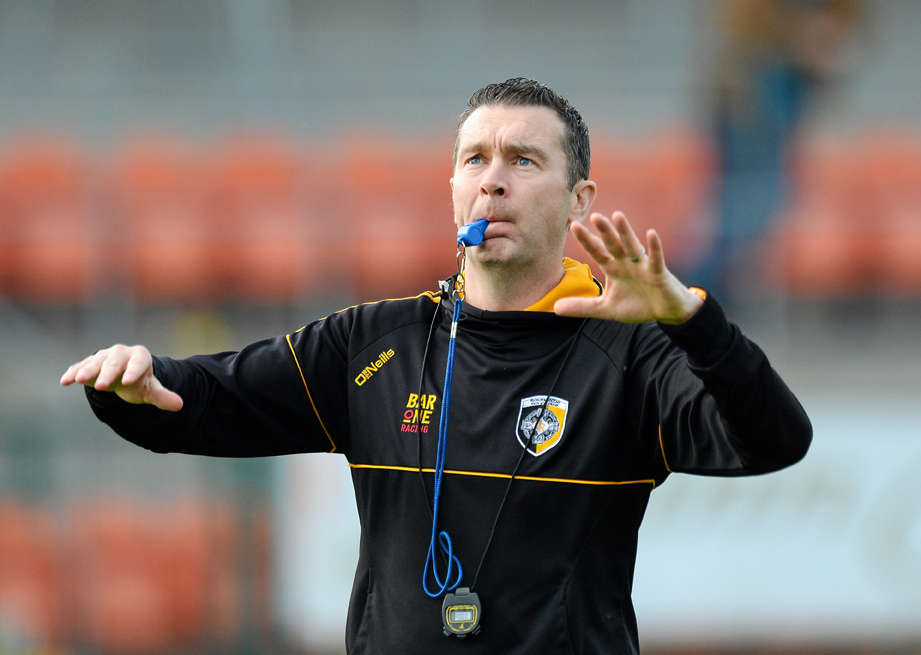STEPPING into the world of coaching after returning from Toronto, Canada in 2020 has marked a journey of transformation in both language and methods.
While I wouldn’t claim to have it all figured out, each passing year has added to my coaching evolution, making the learning curve an indispensable part of my development in this role.
The year 2020, overshadowed by the pandemic, introduced a double challenge on the coaching front. Tasked with guiding 30-plus senior ladies’ footballers and an equally motivated group of senior men’s footballers from another club, both groups with serious championship aspirations, felt like a tall order.
Balancing between two distinct clubs, operating under different codes within the same county, mere kilometres apart, was an intricate dance that pushed my coaching capacities. Being thrown into the deep end with little to no senior experience was a challenge but one that has stood to me
My playing journey, which spanned various Gaelic football clubs, exposed me to a gamut of experienced managers, each leaving an indelible mark.
Learning from Mattie McGleenan’s structured approach to Scotstown’s disciplined ethos between 2013 and 2015 and Oisin McConville’s remarkable man-management skills on a one-to-one level at college level laid the foundation for my coaching strategies, particularly in one-on-one interactions.
It was during my time with Scotstown LGFA that now close friend Declan Stirrat helped me understand the importance of understanding players on a personal level as well as their ability. He taught me the importance of talking to each player before training with a small gesture of asking how their week is. Small talk can go a long way.
In a recent stint with my hometown club Scotstown, the tutelage of Diarmuid Scullion from Derry offered insights I didn’t fully grasp at the time. His emphasis on principles of play and the significance of small-sided games gradually became my compass.
Amidst this, the year 2021 stood as a pivotal chapter, marked by a triumphant LGFA championship coaching experience alongside my entry into inter-county coaching with Monaghan LGFA.
More recently, the guidance of Evan Talty (Galway LGFA), adopting a games-based training approach, provided another layer of wisdom to my coaching philosophy. Principles of play, encapsulating attacking shape, defensive structure, transition, kick-outs and more, became my playbook’s core.
With over 20 principles and rules in place for my current teams—Parnell’s senior men’s side and Foxrock Cabinteely LGFA of Dublin—these building blocks take time to master, eventually culminating in the playing philosophy I aim to instil.
At 31 years old, the past three years were dedicated to shaping this very philosophy. Crafting it was akin to piecing together a complex puzzle, a synthesis of lessons from mentors and personal experiences. A principle like managing opposition kick-outs showcases this adaptability: zonal, man-to-man, or concede for example — flexibility that hinges on understanding the opponent and the situation.
In designing training sessions, a singular principle takes centre stage -transition, for instance. From warm-ups to drills and game-based activities, all facets revolve around this principle. Gone are the conventional routines of circle warm-ups, isolated hand-passing drill, and a kick-passing drill finishing with 15 v 15 with no purpose. It’s all about deconstructing the core principle, ensuring each player comprehends and hones it throughout the session.
The coaching journey remains a work in progress. With the ever-changing landscape of the game, I strive to evolve alongside it, fostering player development, and perhaps clinching a few medals on the way.
Amidst the hustle, one truth shines: enjoyment is paramount in both training and games. Striking the right balance is the key, an eternal pursuit that fuels my coaching endeavours.
In the relentless pursuit of growth, adaptation, and joy, the coaching journey unfolds, shaped by evolving philosophies and a commitment to honing the game.
Receive quality journalism wherever you are, on any device. Keep up to date from the comfort of your own home with a digital subscription.
Any time | Any place | Anywhere












